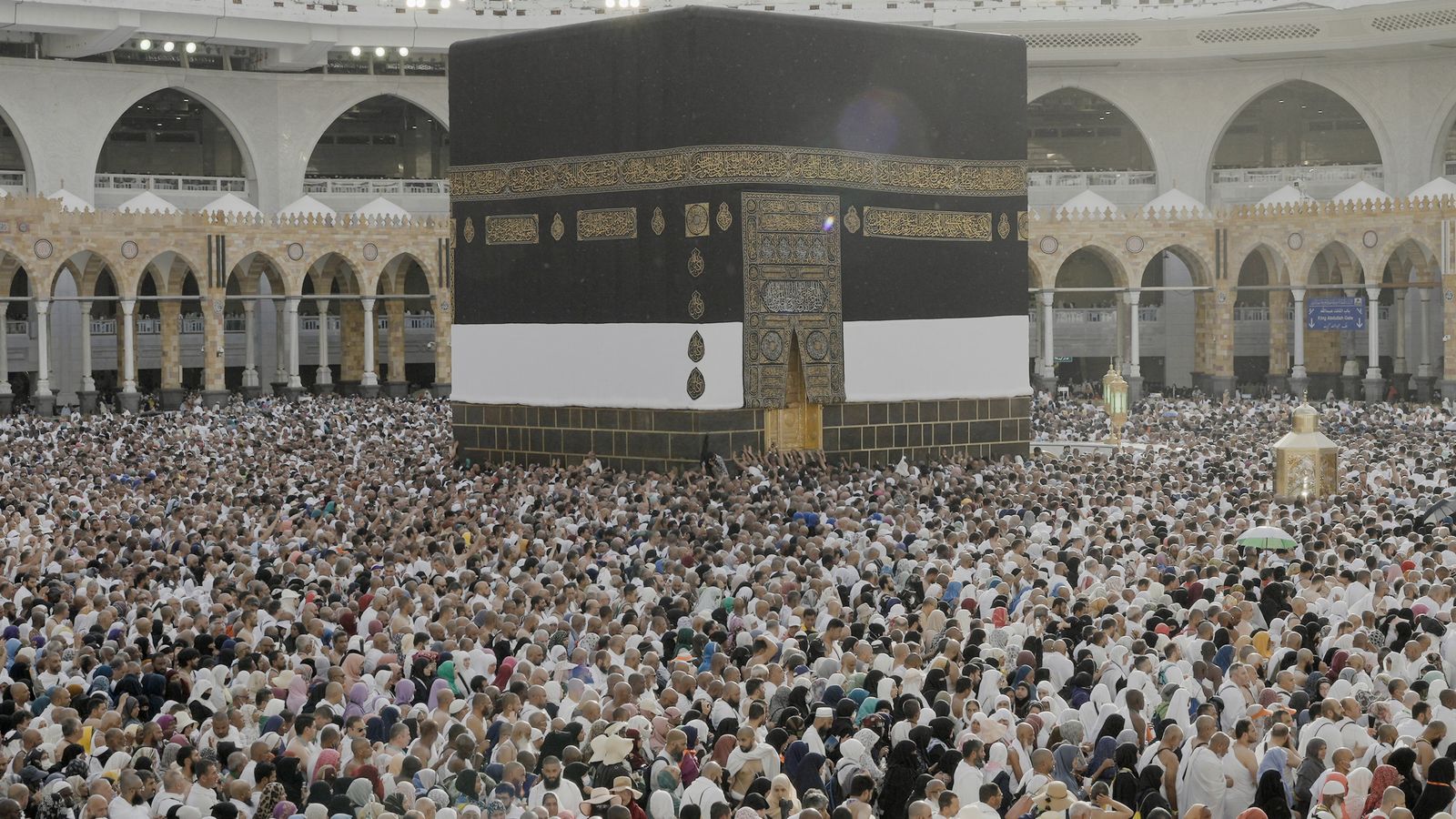More than 2.5 million Muslims from around the world have arrived in Mecca, Saudi Arabia, for this year’s Hajj.
After numbers were reduced over the last few years due to the COVID-19 pandemic, all restrictions have been lifted and it’s expected to be the largest pilgrimage in history.
This will also be the first Hajj for women who, if they wish to do so, can perform the pilgrimage without a male guardian.
What is Hajj?
Hajj is the sacred pilgrimage performed by Muslims at the holy mosque of Masjid al Haram in Mecca.
It is one of the five pillars of Islam, which means that every Muslim should complete it at least once in their lifetime – so long as they have the means to do so.
Hajj takes place during the same period each year – during the month of Dhul Hijjah, the twelfth month in the Islamic calendar.
Saudi Arabia Hajj: British Muslims in uproar over travel chaos
UK hajj travel industry at risk of collapse after Saudi Arabia announces overhaul of pilgrimage entry
Saudi Arabia Hajj: Number allowed to take part in annual pilgrimage severely limited for second year running
Hajj begins on the 8th of Dhul Hijjah and lasts until the 13th of Dhul Hijjah.
This year, Hajj is taking place between 26 June to 1 July 2023.
How long does Hajj last?
The Hajj pilgrimage is performed over five to six days.
When the new crescent moon is sighted, Eid al Adha begins, which lasts for four days.
The pilgrimage comprises a series of rites and rituals, some of which must be performed in order.
It can be physically demanding, as pilgrims are required to travel between locations throughout, and can walk between 5km and 15km per day.
Performing Hajj is a test of patience and temperament – it is a spiritual, emotional, and physical challenge, it can take some preparation and for many, it is a once in a lifetime event.
However, it offers Muslims the opportunity to refresh their spiritual selves, cleanse themselves of their sins and draw themselves closer to Allah.
What is the Day of Arafah and why is it so important?
The Day of Arafah is a very important day for Muslims, as it is a day of immense divine forgiveness, mercy and blessings.
It is a day of redemption for Muslims and an opportunity for purification and seeking Allah’s pleasure.
Muslims believe that the Day of Arafah offers them an opportunity to cleanse their hearts and remember their purpose and destination in life.
Arafah is also the day in which the Prophet Muhammad made his farewell sermon during his final pilgrimage and bore witness that Allah perfected his religion, completed his favours upon his beloved Prophet Muhammad and approved Islam as a way of life.
What is Eid al Adha?
On Eid al Adha, Muslims remember the sacrifice made by the Prophet Ibrahim. In Islamic tradition, Ibrahim was told in a dream to sacrifice his son Ismael for God.
In remembrance of his willingness to sacrifice and to help the poor and needy, Muslims give their own sacrifice which is called Qurbani.
Eid is marked by Muslims around the world with celebrations, family gatherings and time off work and school for those observing.




